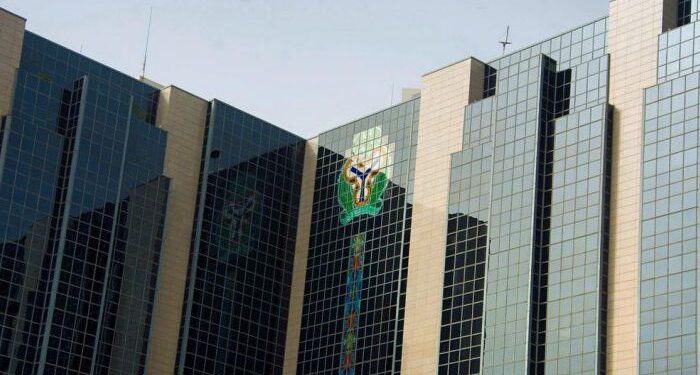Nigeria’s private sector activity expanded further in September 2025 as the Central Bank of Nigeria (CBN) reported that the Purchasing Managers’ Index (PMI) surged to 54.0 points, signaling sustained business growth and improved economic momentum across key sectors. The rise, which reflects higher output, new orders, and stronger business confidence, represents one of the highest PMI readings in the past 18 months.
According to the CBN’s September PMI report, the composite index — which measures manufacturing and non-manufacturing activity — rose from 52.6 points recorded in August to 54.0, surpassing the 50-point threshold that indicates expansion. The improvement was driven largely by increased consumer demand, moderate input cost pressures, and greater business optimism fueled by ongoing government economic reforms.

The apex bank noted that the manufacturing sub-sector recorded a robust performance, led by gains in food, beverages, and cement production. Manufacturers attributed the growth to enhanced access to raw materials and improved foreign exchange liquidity, following recent CBN interventions to clear FX backlogs and stabilize the naira.
Similarly, the non-manufacturing sector, which includes services, trade, and construction, also recorded expansion. Increased spending on telecommunications, logistics, and real estate projects contributed to the positive outlook. The report revealed that several service-oriented firms experienced stronger customer demand and better profit margins, aided by stable energy supply and improved logistics.
CBN Governor Olayemi Cardoso described the PMI growth as a reflection of the real sector’s resilience and a validation of the monetary policy tightening measures aimed at curbing inflation and stabilizing the financial system. He emphasized that the apex bank remains focused on achieving a balance between price stability and economic growth through targeted support for productive sectors.
“The rise in PMI underscores renewed investor confidence and business recovery across critical sectors. It shows that our policy measures, especially around foreign exchange reforms, liquidity management, and inflation control, are beginning to yield tangible results,” Cardoso stated.
He added that the CBN will continue to strengthen coordination with fiscal authorities to ensure a sustained improvement in business conditions, particularly by reducing barriers to credit and enhancing support for small and medium enterprises (SMEs).
Economic analysts have also hailed the latest PMI data as a positive sign for Nigeria’s growth outlook. According to Dr. Muda Yusuf, CEO of the Centre for the Promotion of Private Enterprise (CPPE), the increase signals a turning point in private sector performance, suggesting that economic activities are gradually rebounding after months of uncertainty.
“This improvement in PMI reflects a revival in business sentiment and increased production activities, especially among manufacturers who are beginning to benefit from better access to foreign exchange and more predictable policy directions,” Yusuf said.
He, however, cautioned that challenges such as high interest rates, insecurity, and energy costs could still dampen future growth if not addressed promptly. “Sustaining this momentum requires deliberate policy consistency, infrastructure investment, and continued engagement with the private sector,” he added.
Data from the report also showed that employment levels rose modestly in September, as more firms expanded their workforce to meet growing demand. Business inventories increased slightly, suggesting confidence in future sales growth. However, input prices remained elevated, mainly due to transportation costs and exchange rate adjustments, though at a slower pace compared to previous months.
Further breakdown revealed that 22 of the 31 surveyed sub-sectors reported growth during the month. These include food processing, cement, plastics, electrical equipment, and construction materials. Conversely, a few sub-sectors such as textiles and paper products still recorded slight declines due to import constraints and rising production costs.
The improved PMI aligns with broader macroeconomic indicators showing gradual stabilization in Nigeria’s economy. Inflation, while still high, has shown signs of slowing following the CBN’s recent monetary tightening. The exchange rate has also steadied after several weeks of volatility, while crude oil production continues to recover from earlier disruptions.
Market participants say the positive PMI trend could boost investor confidence in Nigeria’s capital markets and attract new investments into manufacturing and services. They also believe that sustained private sector expansion will support government efforts to diversify the economy away from oil dependence.
Financial experts also link the PMI growth to recent fiscal reforms, such as the removal of fuel subsidies and harmonization of foreign exchange rates, which, despite short-term challenges, have laid the foundation for more transparent and market-driven economic activities.
Commenting on the development, Professor Ken Ife, a development economist, said the latest figures signal renewed vibrancy in the productive sectors. “A PMI above 54 means businesses are optimistic about future demand, and that could translate into higher job creation and improved output in the months ahead,” he said.
He urged the government to maintain macroeconomic stability and continue investing in infrastructure, as these would further enhance industrial productivity and competitiveness.
As Nigeria enters the final quarter of 2025, expectations remain high that the PMI momentum will persist, supported by easing inflationary pressures, improved power supply, and increased agricultural output. Analysts predict that if reforms continue at their current pace, Nigeria could close the year with one of its strongest non-oil growth rates in recent years.
In summary, the September PMI result provides a welcome boost to Nigeria’s economic outlook, reinforcing confidence that sustained reforms, coupled with strategic private sector participation, can anchor the country’s path to recovery and inclusive growth.
Support InfoStride News' Credible Journalism: Only credible journalism can guarantee a fair, accountable and transparent society, including democracy and government. It involves a lot of efforts and money. We need your support. Click here to Donate
